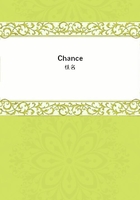
第60章 FLORA(8)
"I have been led to make these remarks by what I have discovered since you left us. I suspected from the first. And now I am certain. What your wife cannot tolerate in this affair is Miss de Barral being what she is."He made a movement, but I kept my eyes away from him and went on steadily. "That is--her being a woman. I have some idea of Mrs.
Fyne's mental attitude towards society with its injustices, with its atrocious or ridiculous conventions. As against them there is no audacity of action your wife's mind refuses to sanction. The doctrine which I imagine she stuffs into the pretty heads of your girl-guests is almost vengeful. A sort of moral fire-and-sword doctrine. How far the lesson is wise is not for me to say. I don't permit myself to judge. I seem to see her very delightful disciples singeing themselves with the torches, and cutting their fingers with the swords of Mrs. Fyne's furnishing.""My wife holds her opinions very seriously," murmured Fyne suddenly.
"Yes. No doubt," I assented in a low voice as before. "But it is a mere intellectual exercise. What I see is that in dealing with reality Mrs. Fyne ceases to be tolerant. In other words, that she can't forgive Miss de Barral for being a woman and behaving like a woman. And yet this is not only reasonable and natural, but it is her only chance. A woman against the world has no resources but in herself. Her only means of action is to be what SHE IS. You understand what I mean."Fyne mumbled between his teeth that he understood. But he did not seem interested. What he expected of me was to extricate him from a difficult situation. I don't know how far credible this may sound, to less solemn married couples, but to remain at variance with his wife seemed to him a considerable incident. Almost a disaster.
"It looks as though I didn't care what happened to her brother," he said. "And after all if anything . . . "I became a little impatient but without raising my tone:
"What thing?" I asked. "The liability to get penal servitude is so far like genius that it isn't hereditary. And what else can be objected to the girl? All the energy of her deeper feelings, which she would use up vainly in the danger and fatigue of a struggle with society may be turned into devoted attachment to the man who offers her a way of escape from what can be only a life of moral anguish.
I don't mention the physical difficulties."Glancing at Fyne out of the corner of one eye I discovered that he was attentive. He made the remark that I should have said all this to his wife. It was a sensible enough remark. But I had given Mrs.
Fyne up. I asked him if his impression was that his wife meant to entrust him with a letter for her brother?
No. He didn't think so. There were certain reasons which made Mrs.
Fyne unwilling to commit her arguments to paper. Fyne was to be primed with them. But he had no doubt that if he persisted in his refusal she would make up her mind to write.
"She does not wish me to go unless with a full conviction that she is right," said Fyne solemnly.
"She's very exacting," I commented. And then I reflected that she was used to it. "Would nothing less do for once?""You don't mean that I should give way--do you?" asked Fyne in a whisper of alarmed suspicion.
As this was exactly what I meant, I let his fright sink into him.
He fidgeted. If the word may be used of so solemn a personage, he wriggled. And when the horrid suspicion had descended into his very heels, so to speak, he became very still. He sat gazing stonily into space bounded by the yellow, burnt-up slopes of the rising ground a couple of miles away. The face of the down showed the white scar of the quarry where not more than sixteen hours before Fyne and I had been groping in the dark with horrible apprehension of finding under our hands the shattered body of a girl. For myself I had in addition the memory of my meeting with her. She was certainly walking very near the edge--courting a sinister solution.
But, now, having by the most unexpected chance come upon a man, she had found another way to escape from the world. Such world as was open to her--without shelter, without bread, without honour. The best she could have found in it would have been a precarious dole of pity diminishing as her years increased. The appeal of the abandoned child Flora to the sympathies of the Fynes had been irresistible. But now she had become a woman, and Mrs. Fyne was presenting an implacable front to a particularly feminine transaction. I may say triumphantly feminine. It is true that Mrs.
Fyne did not want women to be women. Her theory was that they should turn themselves into unscrupulous sexless nuisances. An offended theorist dwelt in her bosom somewhere. In what way she expected Flora de Barral to set about saving herself from a most miserable existence I can't conceive; but I verify believe that she would have found it easier to forgive the girl an actual crime; say the rifling of the Bournemouth old lady's desk, for instance. And then--for Mrs. Fyne was very much of a woman herself--her sense of proprietorship was very strong within her; and though she had not much use for her brother, yet she did not like to see him annexed by another woman. By a chit of a girl. And such a girl, too. Nothing is truer than that, in this world, the luckless have no right to their opportunities--as if misfortune were a legal disqualification.